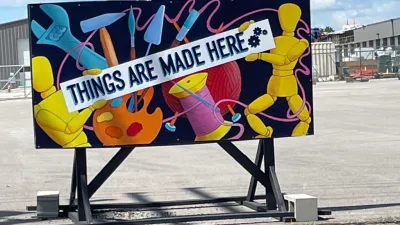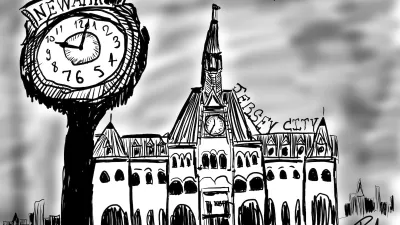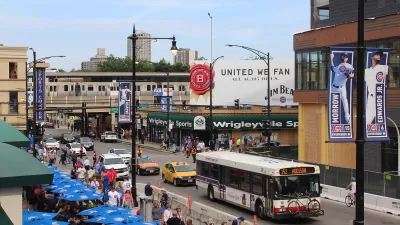Sports teams often coerce cities into contributing public funds toward the building of new stadiums. Numerous reports indicate that it's a bad deal for cities with little to no positive economic impact, writes Neal DeMause.
Cities have been contributing public funds to sports stadiums with promises that the stadiums will revitalize areas and be an economic boon, but the data doesn't back up those claims.
"Studies demonstrating pro sports stadiums' slight economic impact go back to 1984, the year Lake Forest College economist Robert Baade examined thirty cities that had recently constructed new facilities. His finding: in twenty-seven of them, there had been no measurable economic impact; in the other three, economic activity appeared to have decreased."
It seems that fear of losing sports teams will drive most cities to do just about anything to keep a team. In addition to funding a stadium, the perks for teams include subsidies, tax breaks, and loans: "they added an average of 40 percent to sports facilities' public sticker price."
In addition to all the obvious deals, cities are often out-maneuvered by team lawyers that sweeten the deal with outrageous perks that are to the detriment of the city including clauses that require a stadium to remain "state-of-the-art" or else a team could break its lease.
Until cities decide to work together and not compete for teams, the stadium blitzes will likely continue, says DeMause.
Thanks to Cathie Pagano
FULL STORY: Why Do Mayors Love Sports Stadiums?

Planetizen Federal Action Tracker
A weekly monitor of how Trump’s orders and actions are impacting planners and planning in America.

San Francisco's School District Spent $105M To Build Affordable Housing for Teachers — And That's Just the Beginning
SFUSD joins a growing list of school districts using their land holdings to address housing affordability challenges faced by their own employees.

The Tiny, Adorable $7,000 Car Turning Japan Onto EVs
The single seat Mibot charges from a regular plug as quickly as an iPad, and is about half the price of an average EV.

With Protected Lanes, 460% More People Commute by Bike
For those needing more ammo, more data proving what we already knew is here.

In More Metros Than You’d Think, Suburbs are Now More Expensive Than the City
If you're moving to the burbs to save on square footage, data shows you should think again.

The States Losing Rural Delivery Rooms at an Alarming Pace
In some states, as few as 9% of rural hospitals still deliver babies. As a result, rising pre-term births, no adequate pre-term care and "harrowing" close calls are a growing reality.
Urban Design for Planners 1: Software Tools
This six-course series explores essential urban design concepts using open source software and equips planners with the tools they need to participate fully in the urban design process.
Planning for Universal Design
Learn the tools for implementing Universal Design in planning regulations.
Smith Gee Studio
City of Charlotte
City of Camden Redevelopment Agency
City of Astoria
Transportation Research & Education Center (TREC) at Portland State University
US High Speed Rail Association
City of Camden Redevelopment Agency
Municipality of Princeton (NJ)





























